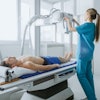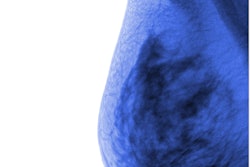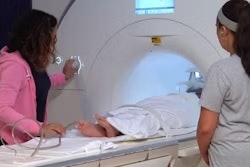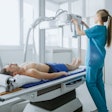Dear AuntMinnie Member,
The recent RSNA meeting delivered a plethora of research, and our top three most-read articles this week reflect that. (By the way, you can peruse all of our RSNA 2023 coverage here.) The number one story highlighted a presentation that described how radiologists are now reading more cardiac CT exams compared to their cardiologist counterparts -- although the same isn't true for cardiac MRI studies -- while our second most-read article highlighted study results also shared at the RSNA meeting about how AI can mitigate the challenge of identifying interval breast cancers.
The third most-popular story this week reported on RSNA research that found how MRI shows that injections of mesenchymal stem cells improve clinical symptoms of patients with knee osteoarthritis, while in fourth place was an article on how digital breast tomosynthesis plus synthesized mammography screening leads to higher detection of early-stage invasive breast cancers grades 2 or 3.
Don't miss the rest of our top 10 articles for the week, including reports on a new rule intended to help determine which adults who have fallen need CT imaging, how PET/CT predicts patient responses to CAR-T cell therapy, how ChatGPT shows potential for diagnosing nuclear medicine cases, how patients who need imaging follow-up but don't get it -- due to health-related social needs obstacles -- require support, how an AI assistance system can help novice sonographers assess the rotator cuff, and how the use of arterial and venous thrombectomy to treat blood clots has increased over the past five years.
This week we also covered the San Antonio Breast Cancer Symposium, reporting on a study that found that a mammography-based AI model showed good and generalizable performance across European screening populations and another that suggested that dynamic contrast-enhanced MRI helps predict early response to immunochemotherapy in women with triple-negative breast cancer.



















